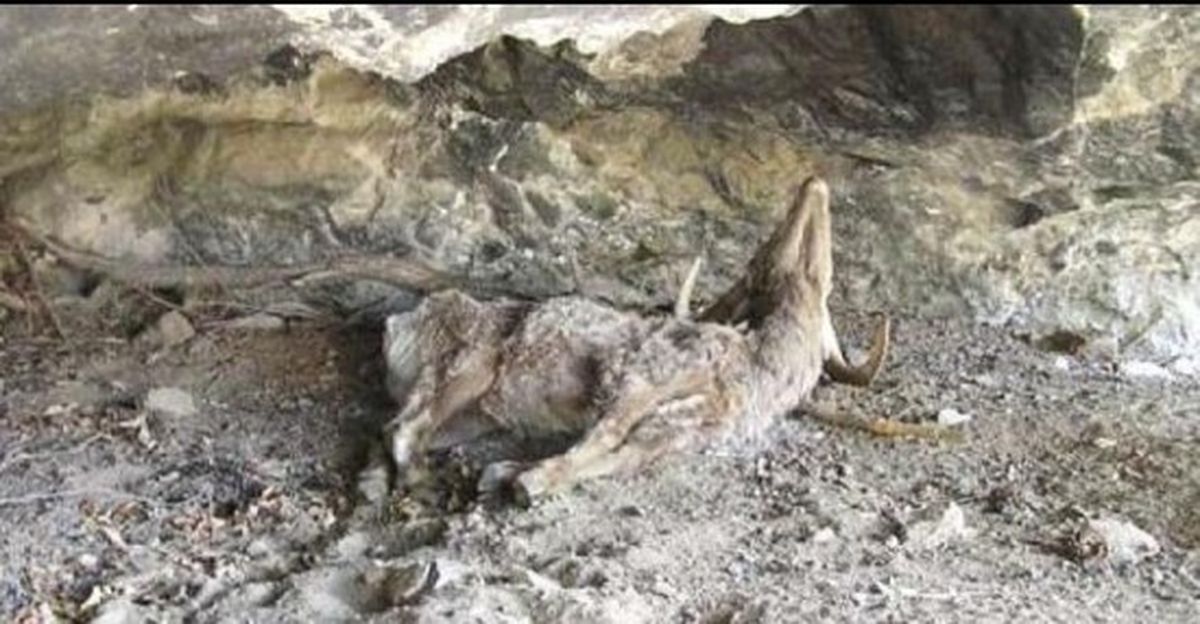Biologists will kill Naches bighorns to curb disease

WILDLIFE -- Noting that at least 25 wild sheep have already been found dead, state wildlife officials announced today they plan to euthanize a large percentage bighorns remaining in the Naches area to curb the spread of a deadly pneumonia outbreak running through the herd.
Washington Department of Fish and Wildlife biologists and U. S. Department of Agriculture’s Wildlife Services staff plan to shoot wild sheep over the next few weeks in the Tieton herd, about 10 miles west of Naches.
Because most of the sheep are believed to be infected with a disease that causes pneumonia, almost all of the animals will likely need to be euthanized, said Richard Harris, WDFW manager for special species.
This is just the latest of several outbreaks that have wracked the region's bighorns.
Read on for details.
“A majority of the live bighorn sheep spotted during recent surveys looked to be in poor condition, with about a third of those animals coughing or showing other signs of the disease,” Harris said. “We hate to have to take this action, but we believe it’s necessary to stop the spread of a disease that could devastate adjacent herds of wild bighorn sheep in the area.”
The disease has already significantly reduced the herd, which is currently estimated at between 35 to 50 animals, he said. In recent years, the Tieton herd has numbered as many as 200 animals.
So far, no dead or sick bighorn sheep have been found outside the Tieton herd.
Earlier this year, wildlife managers received reports of sick and dead sheep along the Tieton River. To date, about 25 dead sheep have been found by WDFW biologists conducting aerial and ground surveys.
Carcasses tested at Washington State University’s veterinary laboratory were found to have pneumonia, caused by Mycoplasma bacteria.
The disease is often fatal in wild bighorn sheep and can affect the survival rate of lambs later born to animals that survive the disease, Harris said. There is no treatment for bighorns with pneumonia and there is no preventative vaccine for the disease, WDFW officials say.
Pneumonia in wild bighorn sheep is not transmissible to humans or domestic livestock, said Harris, who noted that the department is exploring options for how the meat may be used.
Heads and other biological samples from euthanized sheep will be removed from the area, Harris said.
The Yakima area is home to about a third of the state’s 2,000 wild bighorn sheep, with herds totaling nearly 700 animals.
Other bighorn sheep herds in the area include the Quilomene, Cleman Mountain and Umtanum/Selah Butte.
In 2010, state and federal wildlife managers took similar action and successfully stopped the spread of the disease in the Yakima River Canyon. Since then, lamb survival has increased and the population in the canyon is recovering.
Past outbreaks among bighorn sheep in Washington and other parts of the western United States have been linked to contact between wild sheep and domestic sheep or goats that carry Mycoplasma but are unaffected by the bacteria. However, there is currently no evidence that there was contact between domestic and wild sheep in the Naches area, said Harris.
